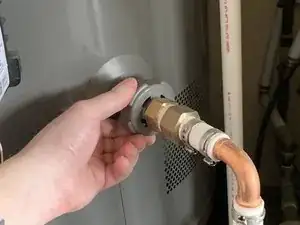
How to Drain a Water Heater
A water heater is a vessel used to heat water for uses such as cooking, cleaning, bathing, and space heating. In North America, water heaters are often called hot water tanks. Types of water heaters include conventional storage water heaters, tankless water heaters, heat pump water heaters, solar water heaters, and indirect water heaters.
Conventional storage water heaters are designed to maximize water heating capacity and nearly instantly provide hot water. Household storage water heater tanks typically hold between 75 and 400 liters (20 and 100 U.S. gallons). Storage water heaters can use electricity, natural gas, propane, solar, heating oil, or other energy sources. Electric water heaters generally use electric resistance elements to heat water in storage tanks. In the United States and Europe, natural gas water heaters are particularly common. The lifespan of storage water heaters can be extended by removing sediment and mineral scale from the tank twice each year.
Tankless or demand-type water heaters heat water without a storage tank. Super-heated coils fill with water and rapidly heat water.
Heat pump water heaters transport heat from location to location rather than generating heat directly for producing hot water. Heat pump water heaters use heat in the ground and the air to heat water, so electricity is only used to move heat rather than produce it.
Solar water heaters use the sun’s energy to produce hot water. Energy from solar panels is transferred to a closed-loop system that heats the water in the tank.
Tankless coil and indirect water heaters utilize a home’s space heating system to additionally heat water.